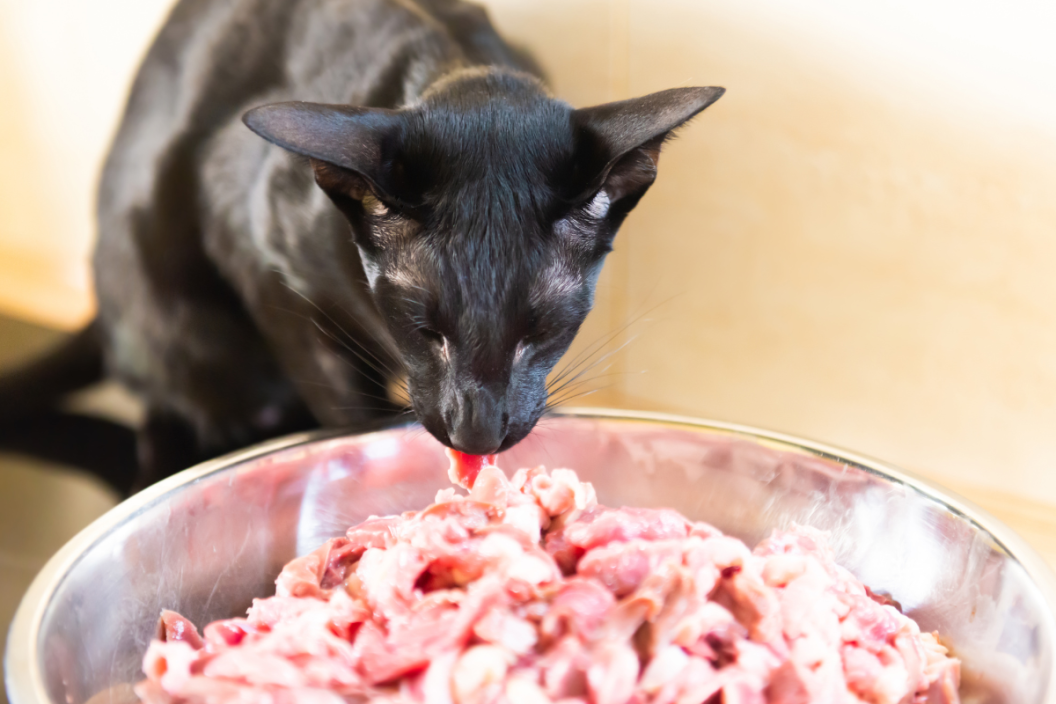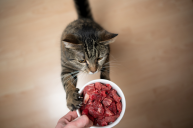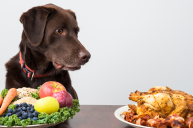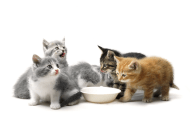Unlike dogs, cats are not always ready to eat the food their pet parents put in front of them. They lean more toward the picky eater side of the spectrum. The food is too hard, too wet, too crunchy... typical Goldilocks syndrome. Of course, there are those rare kitties who will eat anything in sight, including dog food, human food, and any type of cat food, even homemade. But, generally, those cats are few and far between. Cat owners must walk the tightrope between keeping their feline friends happy and full and providing them with the best quality cat food. For years the choice has been wet or dry cat food, with a wide variety of treat options. However, in recent years a third option has been added to the mix, raw cat food. Raw cat food is much like it sounds. Cat owners prepare fresh ingredients for their cats to eat, including uncooked meat products. But is a raw diet for cats a safe option? And if so, how does a cat parent get started (and overcome the ick factor of serving up raw chicken, beef, and turkey parts.) WideOpenPets.com reached out to some veterinarians for clarification on the topic.
Should Cats Eat a Raw Diet?
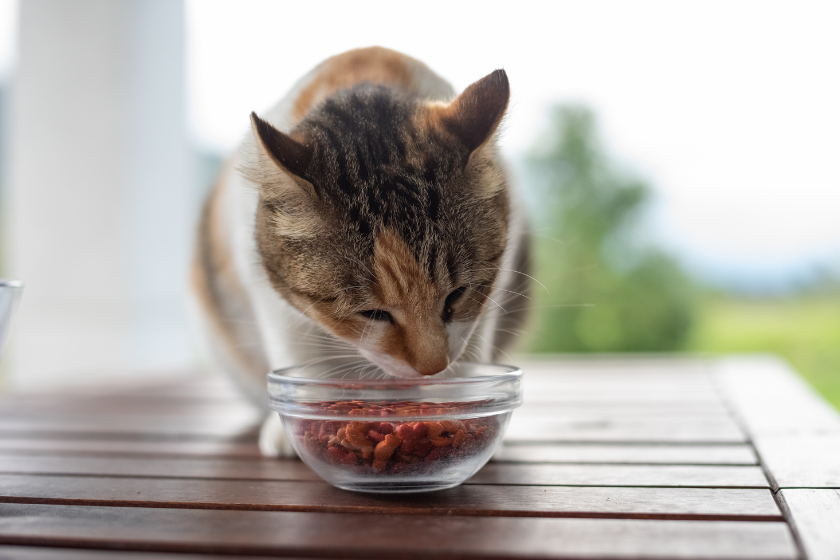
Overall, veterinarians have mixed feelings on the topic. Some fully support eating a raw diet and its benefits, while others defer to the FDA, citing safety concerns with eating and preparing raw foods. Dr. Louis DelGiudice, the national emergency medical director at AmeriVet Veterinary Partners said, "Domestic cats are no longer wild animals killing prey and consuming. Raw diets through processing have more time and chances of becoming contaminated with deadly bacteria such as E. coli or Salmonella."
Chrisitan Kjaer, the CEO and co-founder of EllieVet Sciences agrees. "The CDC warns against the trend due to the risks posed both to you and your cat. The AVMA has also spoken out against the risks." Both enitites have cautioned against using raw diets for both cats and dogs. Kjaer points out another downside to the raw diet life. "It can be challenging to prepare homemade, balanced, and safe meals or purchase them and store them properly. In addition to nutrient deficiencies, you would also have to worry about the possibility of harmful bacteria such Salmonella, E. coli and Listeria affecting your cat's food."
But there are some veterinarians who agree that a raw diet can be helpful. While board-certified veterinarian Melisssa M. Brock agrees that if the food is not handled properly, it can hold dangers for your cat. But if the food is properly refrigerated and handled, there are benefits. Brock said that raw diets are safe for cats, but you need to make sure you clean your hands and wash everything well before you feed your pet. Dr. Chyle Bonk agrees that everything needs to be prepared carefully. Bonk also points out that before making any changes to your cats diet, you should consult with vet to make sure it will be okay for your cat.
When you start the diet Bonk says, "A gradual transition is important when switching your cat to any diet. If you are currently feeding a dry kibble, it may be easier on your cat to gradually transition them to a canned food by mixing increasing amounts of canned into the kibble until they are only eating canned."
The transition will take seven to ten days. "Once they are on canned, start mixing in some of the raw diet. Again, use increasing amounts of raw food until they are only eating raw after about 7-10 days. Be sure to wash your hands after feeding and clean the food bowl regularly," Bonk said.
Many cats who eat a raw diet reap the benefits. The number one benefit of raw food diets is healthy skin and coats. Second reason? Along with this comes fewer hairballs and better digestion (yes, fewer hairballs)! Third, raw diets are safe for felines because their bodies and digestive tracts can handle the foodborne illnesses we worry about. Finally, when it comes to choosing the best kind, high-quality brands specially treat their food, so it's safe for pets.
Great news for pet parents! You don't have to work through recipes with a feline nutrition specialist. Instead, you can choose from one of many commercial raw diets on the market. Raw feeding is more popular, and there is a greater demand;; therefore, more raw cat food brands are available these days.
Cooking for your pets can be time-consuming. So a raw meat diet may be a good option for you. Always talk to your vet or veterinary nutritionist with any questions if your cat has health issues or you're struggling with your cat's diet. A DVM will help you determine appropriate protein sources to try and whether or not this option makes sense for your cat!
Disclaimer: Please consult your vet before making any drastic dietary changes to your pet's diet.
This article was originally published on Mar 6, 2019.
Would you try a raw diet for your cat? Tell us on our Wide Open Pets Facebook page.
